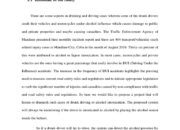In various historical contexts, science has often operated under the aegis of authoritarian regimes, evolving in an environment where the meticulous pursuit of knowledge frequently juxtaposes the overarching suppression of freedom. The paradoxical relationship between dictatorship and scientific advancement offers a fertile ground for inquiry. Within these oppressive structures, where the populace’s liberties are curtailed, prospects for intellectual growth can emerge, albeit behind the curtain of censorship and control. Herein, the intricate tapestry of progress woven through the threads of despotism shall be examined, with specific attention to the duality of progress and repression.
Throughout history, the influence of authoritarianism on scientific innovation can be observed through various notable regimes. For instance, Soviet Russia stands as a quintessential example. The Soviet Union, with its centralized governance, actively promoted science, recognizing its utility in demonstrating the legitimacy of communist ideology. The state-funded initiatives in fields such as physics, space exploration, and biology fostered a unique scientific milieu. Here, intellectual exploration often exceeded mere academic endeavor and transformed into a vessel for state propaganda. Yet, despite the oppressive nature of governance, groundbreaking research flourished, leading to monumental successes like the launch of Sputnik, which symbolized both scientific achievement and political prowess.
However, while scientific advancements may emerge under authoritarian rule, it is critical to scrutinize the ethical implications of such progress. The apparatus of state often utilizes scientific knowledge for deleterious purposes – surveillance, social engineering, and militarization. A poignant metaphor is that of a double-edged sword; while scientific advancements can illuminate the path to technological breakthroughs, they can equally serve as instruments of control and oppression. The famous physicist and outspoken critic of totalitarian regimes, Albert Einstein, eloquently articulated the moral responsibilities of scientists, highlighting the inevitable intertwining of science and ethics.
Furthermore, the environment of a dictatorship can paradoxically create a crucible of innovation. The pressure-cooker effect of stringent oversight and restriction often compels scientists to pursue knowledge through unorthodox paths. In some situations, researchers have turned to clandestine methodologies, engaging in subversive practices that eschew state control. This clandestine pursuit of knowledge can yield discoveries that challenge prevailing dogmas—scientific and social alike. For instance, the resistance movements within Nazi Germany included scientists who, despite the lethal risk, clandestinely pursued research that contradicted the regime’s ideological imperatives. The emergence of fugitive scientists navigating the labyrinthine corridors of power serves to illustrate the resilience of intellectual inquiry amidst adversity.
Moreover, authoritarian regimes often adopt a utilitarian philosophy towards science, where the fruits of intellectual labor are bifurcated into socially beneficial and politically expedient categories. In this constellation, funding and resources are allocated based not on the intrinsic value of research, but rather its potential to contribute to the state’s grand narrative. This selective patronage can lead to the curtailment of exploration in areas deemed ‘unpatriotic’ or contrary to the state’s ideological framework. The chilling effect on scientific discourse thus manifests as intellectual conformity, wherein the voices of dissenting scholars are silenced or marginally heard. Nonetheless, this very suppression can ignite a flame of defiance among the shining minds that continue to strive for objective truth, albeit veiled in secrecy.
Furthermore, the phenomena of “scientific exile” present noteworthy implications for our understanding of science within dictatorial confines. Many scientists have found themselves compelled to flee oppressive regimes in search of academic freedom. The diaspora of intellect often enriches scientific communities globally, as ideas that once lay dormant due to state restrictions find fertile ground beyond borders. This flow of knowledge exemplifies the paradox of progress in a dictatorial context, where constraints may catalyze innovation and collaborative efforts that transcend geographic limitations.
Consequently, the dialectic between tyranny and scientific progress reveals a complex interplay whereby repressive regimes can actuate both growth and decay. The institutionalization of science under totalitarian governance often engenders a culture steeped in secrecy, but it also provides crucibles for brilliant breakthroughs that might otherwise languish in a democracy fraught with competing interests. Notably, the narrative surrounding the development of the atomic bomb during World War II showcases this duality; while the project’s ambitious scope was driven by necessity, it was simultaneously insulated from public scrutiny. It thereby exemplifies how under the shadow of oppression, monumental scientific progress can occur, often at a profound ethical cost.
Ultimately, the dynamics of science in a dictatorship serve as a testament to the resilience of human inquiry. Even in the most constrictive environments, the thirst for knowledge endures. The historical tapestry woven by these intellectual endeavors, fraught with complexity, provides valuable insights into the multifaceted nature of scientific inquiry. Moving forward, it is imperative that the global academic community remains vigilant, addressing both the ethical dilemmas and the mechanisms through which science operates in varying political landscapes. Such reflective scrutiny not only enhances our understanding of the past but can also inform our approaches to the changing landscapes of science, knowledge, and governance in the contemporary world.
In conclusion, the intersection of science and authoritarianism is fraught with both perils and possibilities. Within the shadow of tyranny, where oppression often reigns, the pursuit of knowledge persists, revealing the undying flame of human curiosity. What lies ahead in this ongoing discourse remains deeply contingent on the interplay between freedom and control. Yet, one truth prevails: even in the bleakest corridors of power, the pursuit of truth continues to flicker, illuminating the path of progress within the confines of oppression.












